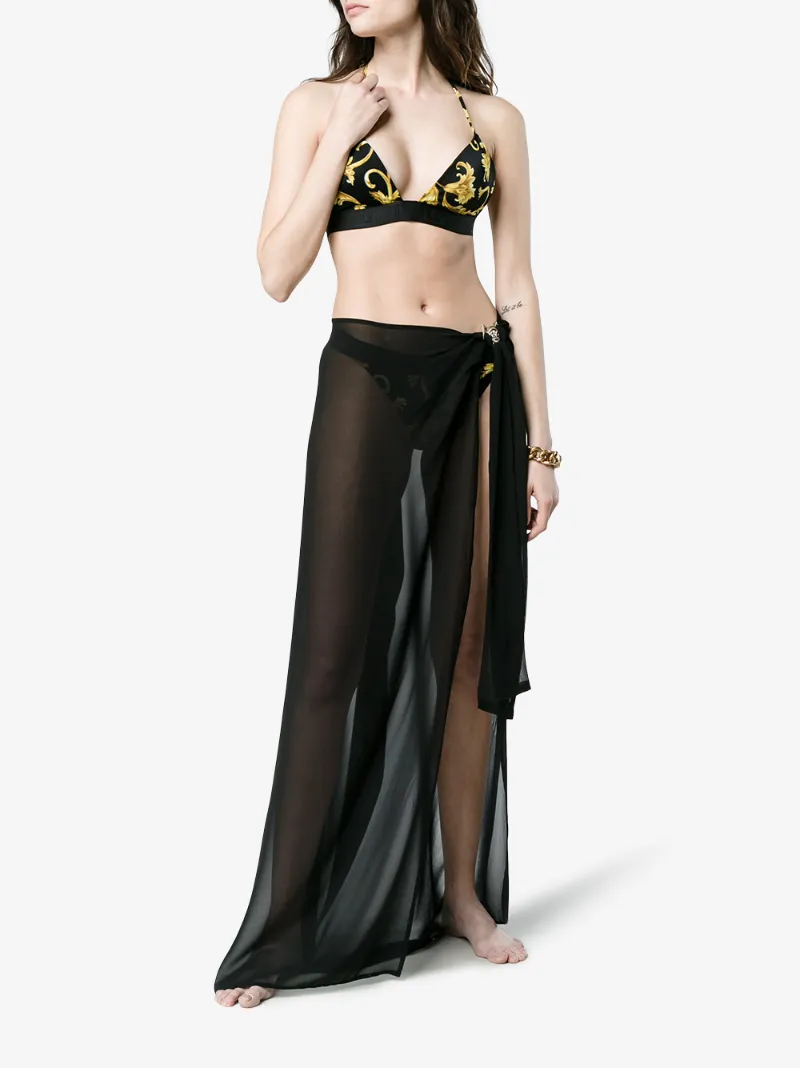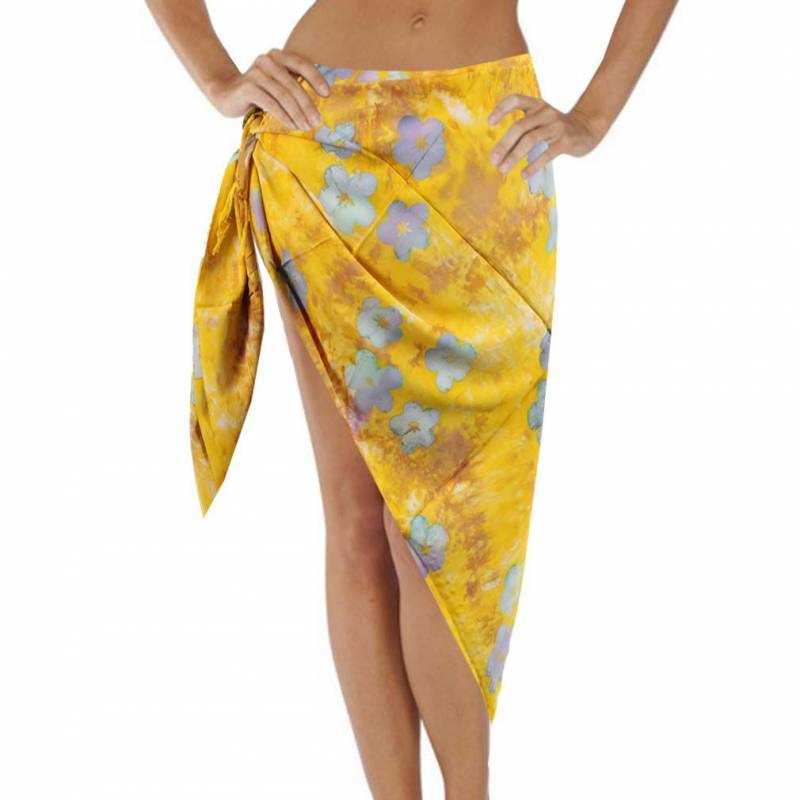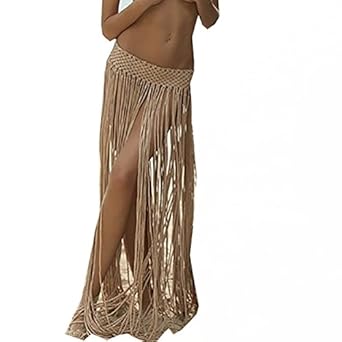Beachwear: A recap
Now that the autumn is finally here and the seaside season still over, it's time for a recap on this summer's fashion choices. Summer is known to be the time for waves, and
sun, and tan, and perfect relax. And a little bit of extraordinary stylish
appearance in the beach bar or by the pool. In other words, beachwear season is
the thing every summer. And beachwear season is the time to shine!
So what
exactly is beachwear? And why do you need it? Well, need is obviously a misused
word here since I bet nobody will make you leave the beach/pool bar if you go
there in plain sexy bikini. But a true fashionista knows how to glow in something
more. And to cover up ... without actually covering much up (as it is the case
with most of the examples I’m about to show you). Besides, beachwear is great
if you don’t want to get additionally sunburned, especially during those long
walks on the coastline.
Traditionally
there are a few well-known options to turn to:
- Kaftan
- Sarong
- Pareo
- Kimono
- Vest
- Robe
- Tunic
- Skirt
- Dress
The kaftan (caftan) is a variant of the robe or tunic and has been worn by several
cultures around the world for thousands of years. Kaftans first made their
appearance on the fashion scene in the 1950s, when fashion designers such as Christian Dior and Balenciaga adopted the kaftan as a loose evening gown in their
collections. American hippie fashions of the late 1960s and the 1970s often include kaftans, too. Celebrities
who often wore kaftans and made it a trend include Elizabeth
Taylor, Beyoncé, Uma Thurman, Susan Sarandon, Kate Moss, Mary-Kate
and Ashley Olsen. Some brands like have dedicated their summer collections to
kaftans. They are incredibly comfortable and usually made from light materials
like silk. Most of the times semi-transparent, colorful and often with floral
motives. You don’t need any specific skills since they don’t need to be tied or
folded. I personally am a big fan and highly recommend beach kaftans.

The Sarong (sarung) is a large length of fabric, often wrapped around the waist, worn in Asia, Africa and on many Pacific islands. The sarong is common wear for women. In North and South America as well as Europe, hip wraps are worn as beach wear or as a cover-up over swimwear. The wrap is often made of a thin, light fabric, often rayon or silk and may feature decorative fringing on both sides. Many modern sarongs have printed designs, too. They may have ties, which are long thin straps of fabric which the wearer can tie together to prevent the wrap from falling down. Many American movies include ladies wearing sarongs, especially the romantic dramas set in the South Seas from the 1930s and 1940s. Designers include them as beachwear in their collections for decades. Personally I enjoy a good looking sarong, but they may be a little bit tricky to tie.
Pāreu (pareo) is the Cook Islands and Tahitian word for a wraparound skirt. Nowadays the term is applied to any
piece of cloth worn wrapped around the body by both males or females. Originally
flower patterns or traditional tapa patterns were printed in bright colours on a
cotton sheet. A pāreu can be worn in many ways. Women will usually wrap it
around their upper body, covering it from breasts to above the knees. Either
they rely on their breasts for it not to slide down, or they may wrap a corner
around their shoulder or their neck. It may also be worn as a longer skirt. The
ends of the pāreu are normally tied in a knot to keep it in place. A with the
sarongs, pareos also can be tricky to tie and keep in place. But they sure look
beautiful.
Kimono is a traditional Japanese garment. Kimono are wrapped around the body, always with the left side over the right and are secured by a sash. Today, kimono are most often worn by women, particularly on special occasions. An ideally tailored kimono has sleeves that fall to the wrist. Kimono fabrics are frequently hand-made and decorated. Modern kimonos are widely available in less-expensive fabrics such as rayon, cotton sateen, cotton, and polyester but silk is still considered the ideal fabric. In the Western world, kimono-styled women's jackets, similar to a casual cardigan, gained public attention in 2014. Fashionable kimonos worn as beachwear often are made from silk or cotton but some transparent models can by made from lace only. They look even more sophisticated and elegant. Another version of this cover-up is the beach Vest. Similary to the kimono, they have to be tied with a belt or a brooch. They may not be as covering as the other options above, but for the elegance they bring it’s worth to give them a shot.


Robes – where do we start with them? Traditionally, there
are various types of robes, including academic gowns (for occasions, such as graduations) judge or barrister attire, may be a religious dress or official dress of a royalty. Robes however are a very
popular fashion trend for the past few decades. They come in various materials,
including cotton, linen, silk and polyester. They may also have floral motives.
Another version of the beach robe is a tunic or a poncho. The best seaside
cover-ups, in my opinion, are the ones from either silk or linen. They keep you
from the heat and are a comfortable choice.

Another trendy beachwear options for the past few years are transparent
dresses or skirts. They are included in various designer collections from underwear
brands to huge designer names. They look stylish and excessively elegant,
considering the material they are maid of. Lace or net can be used as main
material in their production. From all the options, enlisted in this article,
they are the least covering. However, due to their latest popularity, they were
every fashionista’s choice this summer. They surely are perfect for a quick
break to the nearest fancy beach bar.


Instead of a recap of this recap, for conclusion I will give you my personal favourite
beachwear options from my own wardrobe:




Which are your favourite beachwear ideas? And which cover-up option from
the list above do you consider the best? Let me know in the comments below and
feel free to share you own ideas.














Коментари
Публикуване на коментар